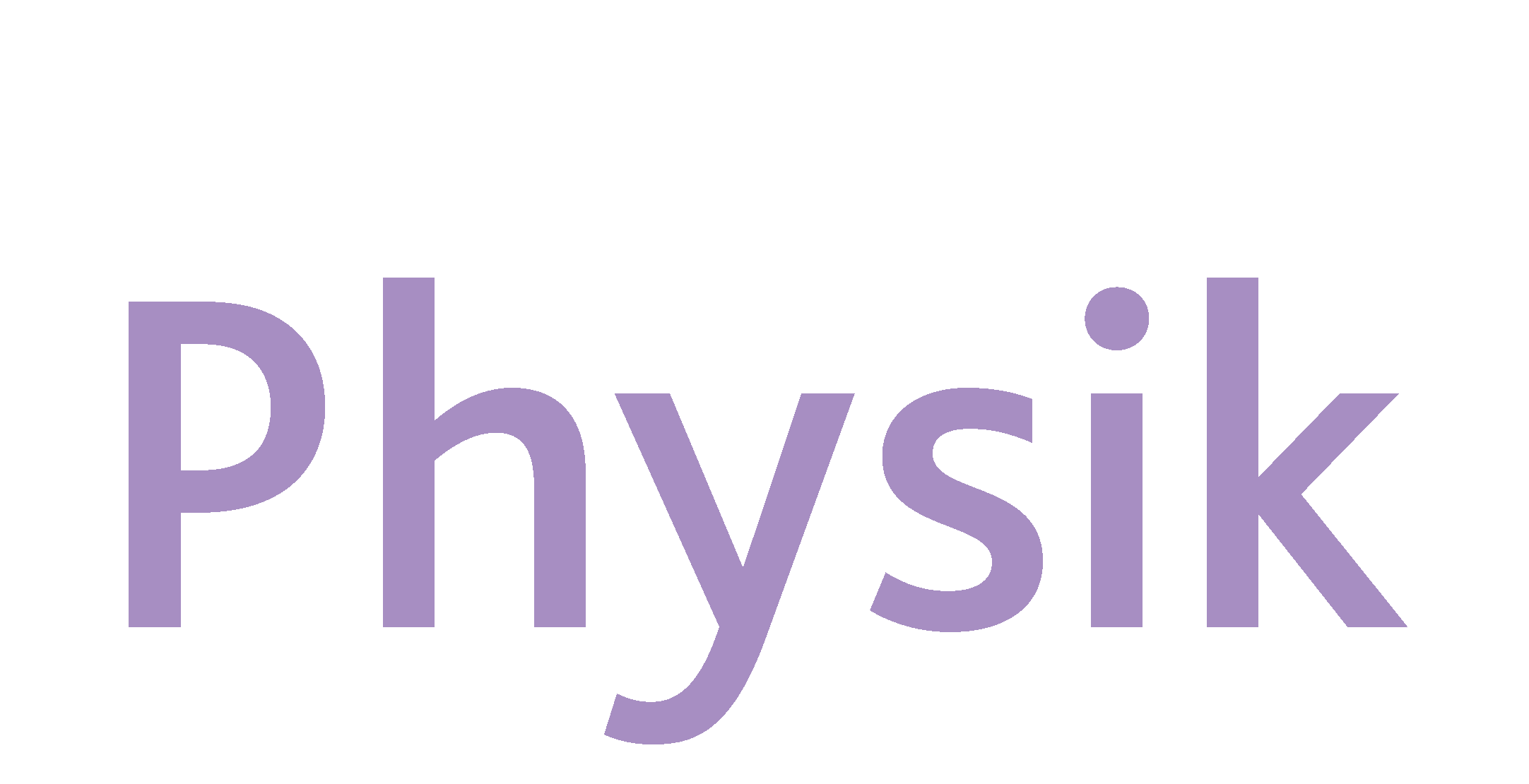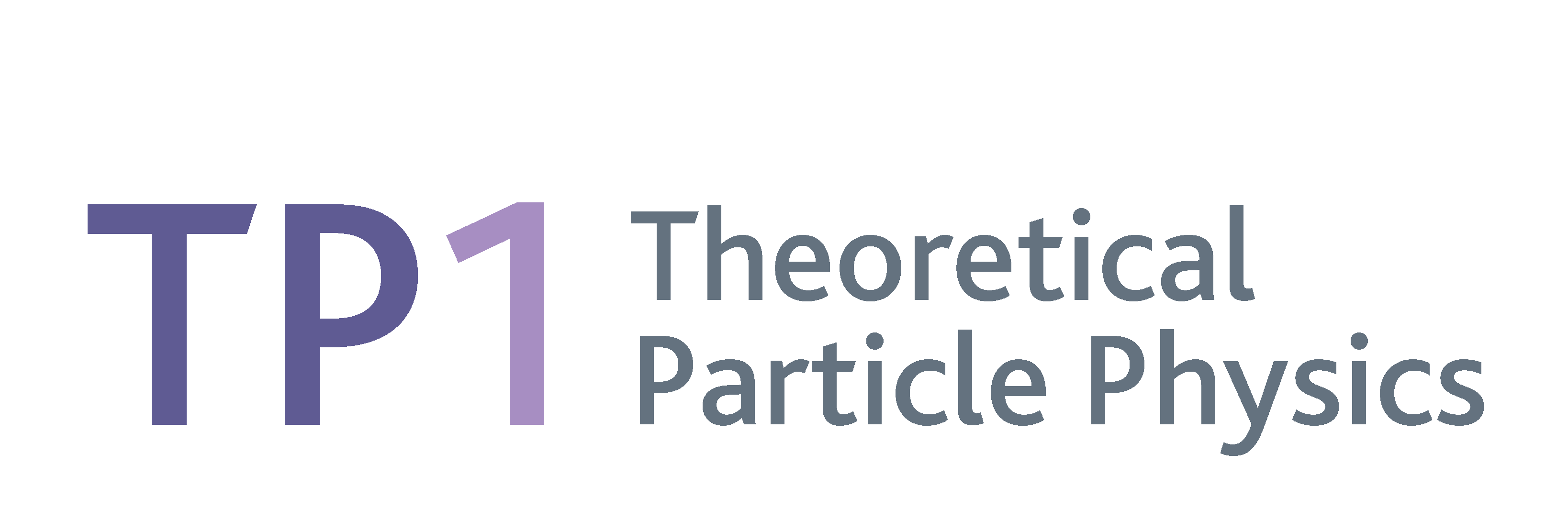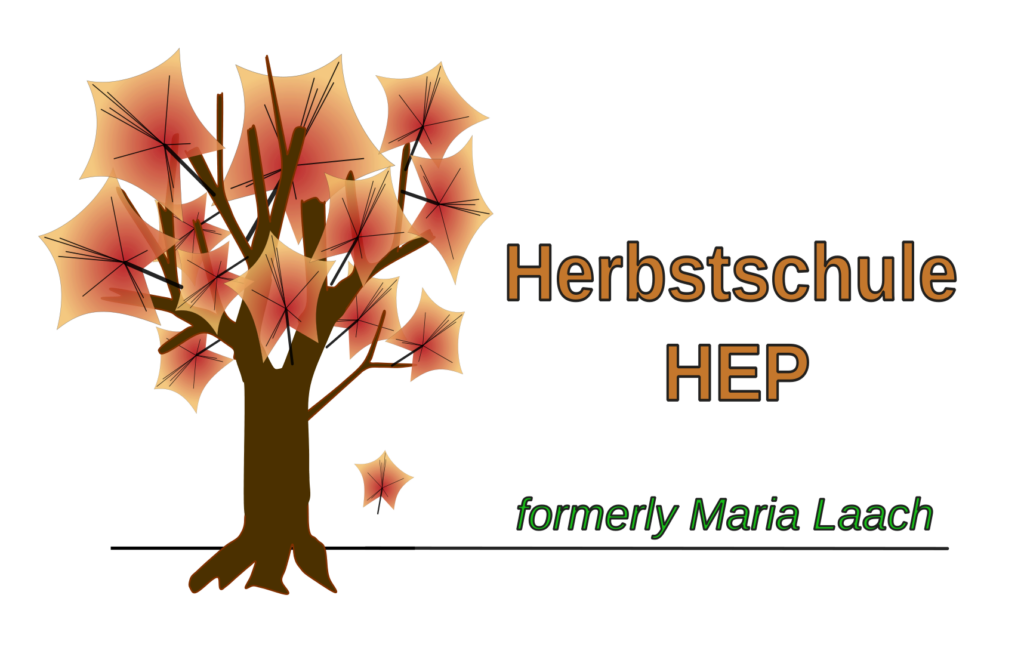



Bildquellen: Universität Siegen
Die Teilchenphysik befasst sich mit einigen der grundlegendsten Fragen im Zusammenhang mit der Struktur der Materie bei kleinsten Abständen und stößt dabei an die Grenzen unseres Wissens. Unser besonderes Interesse gilt der theoretischen Interpretation der Ergebnisse von Experimenten am Large Hadron Collider (LHC) am CERN und dem Flavour-Physikexperiment BELLE II am KEK (Tsukuba/Japan).
Unsere Gruppe ist bekannt für sehr präzise Vorhersagen für Collider- und Flavour-Observablen innerhalb des Standardmodells der Teilchenphysik, die auf perturbativen und nicht-perturbativen quantenfeldtheoretischen Methoden basieren. Der Vergleich unserer Berechnungen mit experimentellen Ergebnissen liefert Erkenntnisse über mögliche Erweiterungen des Standardmodells, mit denen sich offene Fragen wie der Ursprung der Materie-Antimaterie-Asymmetrie im Universum oder die Natur der dunklen Materie beantworten lassen könnten.
April 2024
| Montag | Dienstag | Mittwoch | Donnerstag | Freitag | Samstag | Sonntag |
|---|---|---|---|---|---|---|
|
Montag April 1
1
|
Dienstag April 2
2
|
Mittwoch April 3
3
|
Donnerstag April 4
4
|
Freitag April 5
5
|
Samstag April 6
6
|
Sonntag April 7
7
|
|
Montag April 8
8
|
Dienstag April 9
9
|
Mittwoch April 10
10
|
Donnerstag April 11
11
|
Freitag April 12
12
|
Samstag April 13
13
|
Sonntag April 14
14
|
|
Montag April 15
15
|
Dienstag April 16
16
|
Mittwoch April 17
17
|
Donnerstag April 18
18
|
Freitag April 19
19
|
Samstag April 20
20
|
Sonntag April 21
21
|
|
Montag April 22
22
|
Dienstag April 23
23
|
Mittwoch April 24
24
|
Donnerstag April 25
25
|
Freitag April 26
26
|
Samstag April 27
27
|
Sonntag April 28
28
|
|
Montag April 29
29
|
Dienstag April 30
30
|
Mai 2024
| Montag | Dienstag | Mittwoch | Donnerstag | Freitag | Samstag | Sonntag |
|---|---|---|---|---|---|---|
|
Mittwoch Mai 1
1
|
Donnerstag Mai 2
2
|
Freitag Mai 3
3
|
Samstag Mai 4
4
|
Sonntag Mai 5
5
|
||
|
Montag Mai 6
6
|
Dienstag Mai 7
7
|
Mittwoch Mai 8
8
|
Donnerstag Mai 9
9
|
Freitag Mai 10
10
|
Samstag Mai 11
11
|
Sonntag Mai 12
12
|
|
Montag Mai 13
13
|
Dienstag Mai 14
14
|
Mittwoch Mai 15
15
|
Donnerstag Mai 16
16
|
Freitag Mai 17
17
|
Samstag Mai 18
18
|
Sonntag Mai 19
19
|
|
Montag Mai 20
20
|
Dienstag Mai 21
21
|
Mittwoch Mai 22
22
|
Donnerstag Mai 23
23
|
Freitag Mai 24
24
|
Samstag Mai 25
25
|
Sonntag Mai 26
26
|
|
Montag Mai 27
27
|
Dienstag Mai 28
28
|
Mittwoch Mai 29
29
|
Donnerstag Mai 30
30
|
Freitag Mai 31
31
|
Juni 2024
| Montag | Dienstag | Mittwoch | Donnerstag | Freitag | Samstag | Sonntag |
|---|---|---|---|---|---|---|
|
Samstag Juni 1
1
|
Sonntag Juni 2
2
|
|||||
|
Montag Juni 3
3
|
Dienstag Juni 4
4
|
Mittwoch Juni 5
5
|
Donnerstag Juni 6
6
|
Freitag Juni 7
7
|
Samstag Juni 8
8
|
Sonntag Juni 9
9
|
|
Montag Juni 10
10
|
Dienstag Juni 11
11
|
Mittwoch Juni 12
12
|
Donnerstag Juni 13
13
|
Freitag Juni 14
14
|
Samstag Juni 15
15
|
Sonntag Juni 16
16
|
|
Montag Juni 17
17
|
Dienstag Juni 18
18
|
Mittwoch Juni 19
19
|
Donnerstag Juni 20
20
|
Freitag Juni 21
21
|
Samstag Juni 22
22
|
Sonntag Juni 23
23
|
|
Montag Juni 24
24
|
Dienstag Juni 25
25
|
Mittwoch Juni 26
26
|
Donnerstag Juni 27
27
|
Freitag Juni 28
28
|
Samstag Juni 29
29
|
Sonntag Juni 30
30
|
Juli 2024
| Montag | Dienstag | Mittwoch | Donnerstag | Freitag | Samstag | Sonntag |
|---|---|---|---|---|---|---|
|
Montag Juli 1
1
|
Dienstag Juli 2
2
|
Mittwoch Juli 3
3
|
Donnerstag Juli 4
4
|
Freitag Juli 5
5
|
Samstag Juli 6
6
|
Sonntag Juli 7
7
|
|
Montag Juli 8
8
|
Dienstag Juli 9
9
|
Mittwoch Juli 10
10
|
Donnerstag Juli 11
11
|
Freitag Juli 12
12
|
Samstag Juli 13
13
|
Sonntag Juli 14
14
|
|
Montag Juli 15
15
|
Dienstag Juli 16
16
|
Mittwoch Juli 17
17
|
Donnerstag Juli 18
18
|
Freitag Juli 19
19
|
Samstag Juli 20
20
|
Sonntag Juli 21
21
|
|
Montag Juli 22
22
|
Dienstag Juli 23
23
|
Mittwoch Juli 24
24
|
Donnerstag Juli 25
25
|
Freitag Juli 26
26
|
Samstag Juli 27
27
|
Sonntag Juli 28
28
|
|
Montag Juli 29
29
|
Dienstag Juli 30
30
|
Mittwoch Juli 31
31
|
August 2024
| Montag | Dienstag | Mittwoch | Donnerstag | Freitag | Samstag | Sonntag |
|---|---|---|---|---|---|---|
|
Donnerstag August 1
1
|
Freitag August 2
2
|
Samstag August 3
3
|
Sonntag August 4
4
|
|||
|
Montag August 5
5
|
Dienstag August 6
6
|
Mittwoch August 7
7
|
Donnerstag August 8
8
|
Freitag August 9
9
|
Samstag August 10
10
|
Sonntag August 11
11
|
|
Montag August 12
12
|
Dienstag August 13
13
|
Mittwoch August 14
14
|
Donnerstag August 15
15
|
Freitag August 16
16
|
Samstag August 17
17
|
Sonntag August 18
18
|
|
Montag August 19
19
|
Dienstag August 20
20
|
Mittwoch August 21
21
|
Donnerstag August 22
22
|
Freitag August 23
23
|
Samstag August 24
24
|
Sonntag August 25
25
|
|
Montag August 26
26
|
Dienstag August 27
27
|
Mittwoch August 28
28
|
Donnerstag August 29
29
|
Freitag August 30
30
|
Samstag August 31
31
|
Keine Termine.
September 2024
| Montag | Dienstag | Mittwoch | Donnerstag | Freitag | Samstag | Sonntag |
|---|---|---|---|---|---|---|
|
Sonntag September 1
1
|
||||||
|
Montag September 2
2
|
Dienstag September 3
3
|
Mittwoch September 4
4
|
Donnerstag September 5
5
|
Freitag September 6
6
|
Samstag September 7
7
|
Sonntag September 8
8
|
|
Montag September 9
9
|
Dienstag September 10
10
|
Mittwoch September 11
11
|
Donnerstag September 12
12
|
Freitag September 13
13
|
Samstag September 14
14
|
Sonntag September 15
15
|
|
Montag September 16
16
|
Dienstag September 17
17
|
Mittwoch September 18
18
|
Donnerstag September 19
19
|
Freitag September 20
20
|
Samstag September 21
21
|
Sonntag September 22
22
|
|
Montag September 23
23
|
Dienstag September 24
24
|
Mittwoch September 25
25
|
Donnerstag September 26
26
|
Freitag September 27
27
|
Samstag September 28
28
|
Sonntag September 29
29
|
|
Montag September 30
30
|
Oktober 2024
| Montag | Dienstag | Mittwoch | Donnerstag | Freitag | Samstag | Sonntag |
|---|---|---|---|---|---|---|
|
Dienstag Oktober 1
1
|
Mittwoch Oktober 2
2
|
Donnerstag Oktober 3
3
|
Freitag Oktober 4
4
|
Samstag Oktober 5
5
|
Sonntag Oktober 6
6
|
|
|
Montag Oktober 7
7
|
Dienstag Oktober 8
8
|
Mittwoch Oktober 9
9
|
Donnerstag Oktober 10
10
|
Freitag Oktober 11
11
|
Samstag Oktober 12
12
|
Sonntag Oktober 13
13
|
|
Montag Oktober 14
14
|
Dienstag Oktober 15
15
|
Mittwoch Oktober 16
16
|
Donnerstag Oktober 17
17
|
Freitag Oktober 18
18
|
Samstag Oktober 19
19
|
Sonntag Oktober 20
20
|
|
Montag Oktober 21
21
|
Dienstag Oktober 22
22
|
Mittwoch Oktober 23
23
|
Donnerstag Oktober 24
24
|
Freitag Oktober 25
25
|
Samstag Oktober 26
26
|
Sonntag Oktober 27
27
|
|
Montag Oktober 28
28
|
Dienstag Oktober 29
29
|
Mittwoch Oktober 30
30
|
Donnerstag Oktober 31
31
|
November 2024
| Montag | Dienstag | Mittwoch | Donnerstag | Freitag | Samstag | Sonntag |
|---|---|---|---|---|---|---|
|
Freitag November 1
1
|
Samstag November 2
2
|
Sonntag November 3
3
|
||||
|
Montag November 4
4
|
Dienstag November 5
5
|
Mittwoch November 6
6
|
Donnerstag November 7
7
|
Freitag November 8
8
|
Samstag November 9
9
|
Sonntag November 10
10
|
|
Montag November 11
11
|
Dienstag November 12
12
|
Mittwoch November 13
13
|
Donnerstag November 14
14
|
Freitag November 15
15
|
Samstag November 16
16
|
Sonntag November 17
17
|
|
Montag November 18
18
|
Dienstag November 19
19
|
Mittwoch November 20
20
|
Donnerstag November 21
21
|
Freitag November 22
22
|
Samstag November 23
23
|
Sonntag November 24
24
|
|
Montag November 25
25
|
Dienstag November 26
26
|
Mittwoch November 27
27
|
Donnerstag November 28
28
|
Freitag November 29
29
|
Samstag November 30
30
|
Keine Termine.
Dezember 2024
| Montag | Dienstag | Mittwoch | Donnerstag | Freitag | Samstag | Sonntag |
|---|---|---|---|---|---|---|
|
Sonntag Dezember 1
1
|
||||||
|
Montag Dezember 2
2
|
Dienstag Dezember 3
3
|
Mittwoch Dezember 4
4
|
Donnerstag Dezember 5
5
|
Freitag Dezember 6
6
|
Samstag Dezember 7
7
|
Sonntag Dezember 8
8
|
|
Montag Dezember 9
9
|
Dienstag Dezember 10
10
|
Mittwoch Dezember 11
11
|
Donnerstag Dezember 12
12
|
Freitag Dezember 13
13
|
Samstag Dezember 14
14
|
Sonntag Dezember 15
15
|
|
Montag Dezember 16
16
|
Dienstag Dezember 17
17
|
Mittwoch Dezember 18
18
|
Donnerstag Dezember 19
19
|
Freitag Dezember 20
20
|
Samstag Dezember 21
21
|
Sonntag Dezember 22
22
|
|
Montag Dezember 23
23
|
Dienstag Dezember 24
24
|
Mittwoch Dezember 25
25
|
Donnerstag Dezember 26
26
|
Freitag Dezember 27
27
|
Samstag Dezember 28
28
|
Sonntag Dezember 29
29
|
|
Montag Dezember 30
30
|
Dienstag Dezember 31
31
|
Keine Termine.
Januar 2025
| Montag | Dienstag | Mittwoch | Donnerstag | Freitag | Samstag | Sonntag |
|---|---|---|---|---|---|---|
|
Mittwoch Januar 1
1
|
Donnerstag Januar 2
2
|
Freitag Januar 3
3
|
Samstag Januar 4
4
|
Sonntag Januar 5
5
|
||
|
Montag Januar 6
6
|
Dienstag Januar 7
7
|
Mittwoch Januar 8
8
|
Donnerstag Januar 9
9
|
Freitag Januar 10
10
|
Samstag Januar 11
11
|
Sonntag Januar 12
12
|
|
Montag Januar 13
13
|
Dienstag Januar 14
14
|
Mittwoch Januar 15
15
|
Donnerstag Januar 16
16
|
Freitag Januar 17
17
|
Samstag Januar 18
18
|
Sonntag Januar 19
19
|
|
Montag Januar 20
20
|
Dienstag Januar 21
21
|
Mittwoch Januar 22
22
|
Donnerstag Januar 23
23
|
Freitag Januar 24
24
|
Samstag Januar 25
25
|
Sonntag Januar 26
26
|
|
Montag Januar 27
27
|
Dienstag Januar 28
28
|
Mittwoch Januar 29
29
|
Donnerstag Januar 30
30
|
Freitag Januar 31
31
|
Keine Termine.
Februar 2025
| Montag | Dienstag | Mittwoch | Donnerstag | Freitag | Samstag | Sonntag |
|---|---|---|---|---|---|---|
|
Samstag Februar 1
1
|
Sonntag Februar 2
2
|
|||||
|
Montag Februar 3
3
|
Dienstag Februar 4
4
|
Mittwoch Februar 5
5
|
Donnerstag Februar 6
6
|
Freitag Februar 7
7
|
Samstag Februar 8
8
|
Sonntag Februar 9
9
|
|
Montag Februar 10
10
|
Dienstag Februar 11
11
|
Mittwoch Februar 12
12
|
Donnerstag Februar 13
13
|
Freitag Februar 14
14
|
Samstag Februar 15
15
|
Sonntag Februar 16
16
|
|
Montag Februar 17
17
|
Dienstag Februar 18
18
|
Mittwoch Februar 19
19
|
Donnerstag Februar 20
20
|
Freitag Februar 21
21
|
Samstag Februar 22
22
|
Sonntag Februar 23
23
|
|
Montag Februar 24
24
|
Dienstag Februar 25
25
|
Mittwoch Februar 26
26
|
Donnerstag Februar 27
27
|
Freitag Februar 28
28
|
Keine Termine.
März 2025
| Montag | Dienstag | Mittwoch | Donnerstag | Freitag | Samstag | Sonntag |
|---|---|---|---|---|---|---|
|
Samstag März 1
1
|
Sonntag März 2
2
|
|||||
|
Montag März 3
3
|
Dienstag März 4
4
|
Mittwoch März 5
5
|
Donnerstag März 6
6
|
Freitag März 7
7
|
Samstag März 8
8
|
Sonntag März 9
9
|
|
Montag März 10
10
|
Dienstag März 11
11
|
Mittwoch März 12
12
|
Donnerstag März 13
13
|
Freitag März 14
14
|
Samstag März 15
15
|
Sonntag März 16
16
|
|
Montag März 17
17
|
Dienstag März 18
18
|
Mittwoch März 19
19
|
Donnerstag März 20
20
|
Freitag März 21
21
|
Samstag März 22
22
|
Sonntag März 23
23
|
|
Montag März 24
24
|
Dienstag März 25
25
|
Mittwoch März 26
26
|
Donnerstag März 27
27
|
Freitag März 28
28
|
Samstag März 29
29
|
Sonntag März 30
30
|
|
Montag März 31
31
|
Keine Termine.
Adresse
Universität Siegen
Fakultät IV/Department Physik
Theoretische Physik 1
Walter-Flex-Straße 3
57072 Siegen
Tel.: +49 271 740-3890 (Sekretariat)
Fax: +49 271 740-3804










